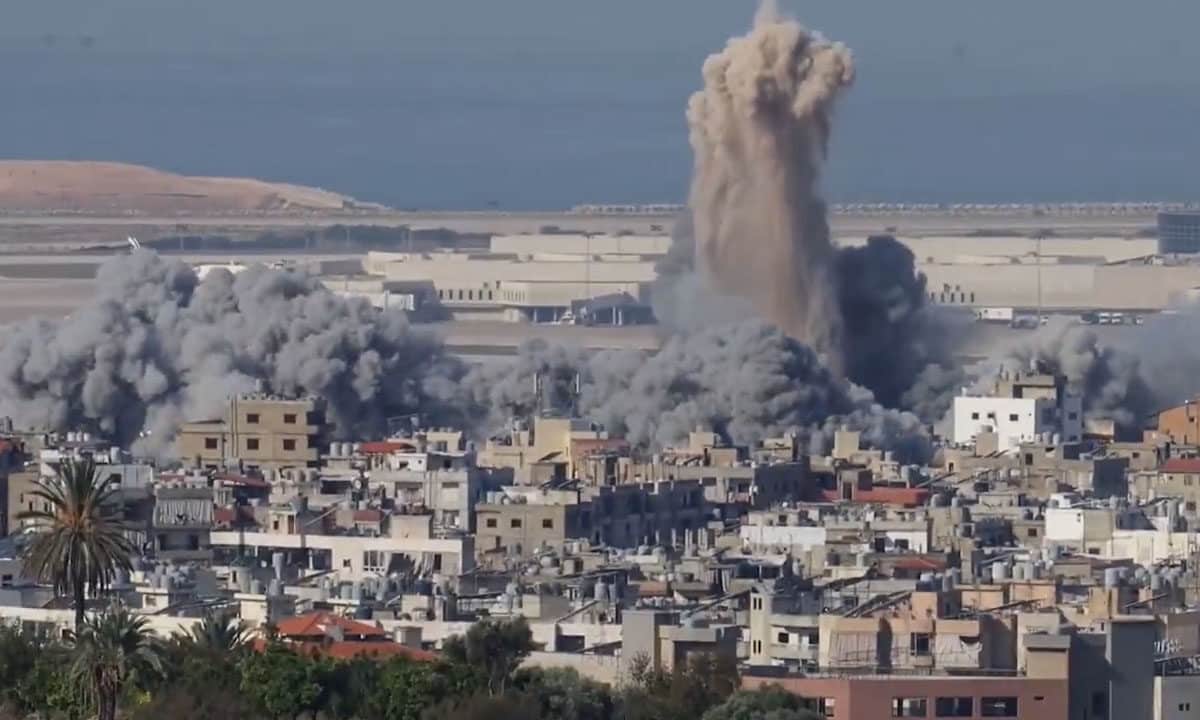Israel Launches First Airstrike on Beirut Since Ceasefire; Escalation Sparks Global Concern
For the first time since a ceasefire agreement in November 2024, Israel launched an airstrike on the Lebanese capital, Beirut, intensifying tensions with Hezbollah and raising international alarm.

Beirut: For the first time since a ceasefire agreement in November 2024, Israel launched an airstrike on the Lebanese capital, Beirut, intensifying tensions with Hezbollah and raising international alarm.
On Friday, a powerful explosion rocked Beirut’s southern suburbs, an area considered a Hezbollah stronghold. Smoke billowed into the sky as Israel claimed to have targeted a drone storage facility used by the militant group. The Israeli military alleged that Hezbollah hides weapons among civilians and claimed to have issued evacuation warnings prior to the strike.
Table of Contents
The area struck, Dahiyeh, is a densely populated residential and commercial zone, near schools and public buildings. The strike came after Israel accused Hezbollah of launching projectiles from Lebanon into northern Israel — a claim Hezbollah denied, calling the Israeli action a pretext for continued aggression.
Israeli Defense Minister Sends Stern Message
Israeli Defense Minister Yoav Gallant warned Lebanon’s government, stating, “If there is no peace in northern Israel, there will be no peace in Beirut.” He accused Lebanese authorities of failing to uphold the ceasefire and threatened further enforcement by Israeli forces.
Lebanon Reacts; Schools Shut, Civilians Flee
In response, Lebanon’s government closed schools and universities in the affected Hadath suburb. Residents were seen evacuating the area in panic before the strike.
Additional Israeli airstrikes on Friday killed three people and injured 18, including women and children, in the southern Lebanese village of Kfar Tibnit, according to Lebanon’s health ministry.
France, UN Condemn the Escalation
Lebanon’s President Joseph Aoun condemned the strike, calling it a violation of the ceasefire agreement mediated by France and the United States. Speaking from Paris, French President Emmanuel Macron labeled the attack “unacceptable” and said he would speak with US President Joe Biden and Israeli Prime Minister Benjamin Netanyahu.
Macron criticized Israel’s unilateral military actions, saying they “play into Hezbollah’s hands” and jeopardize regional stability.
The UN Special Coordinator for Lebanon, Jeanine Hennis-Plasschaert, expressed deep concern over the flare-up, warning that Lebanon is in a “critical period.”
Regional War Intensifies
The renewed conflict comes amid Israel’s resumed military campaign in Gaza, where airstrikes have killed nearly 900 people since mid-March, including over 40 in the past 24 hours. The ongoing war, triggered by Hamas’ October 7, 2023 attack on Israel, has claimed more than 50,000 lives in Gaza and displaced millions.
Israel says it will not halt its offensive until Hamas releases 59 remaining hostages, relinquishes control, and disarms. Hamas has demanded a lasting ceasefire, Israeli withdrawal, and prisoner release in return.
As the regional crisis deepens, international observers warn that the renewed violence in Lebanon could spark a broader conflict involving multiple fronts.
